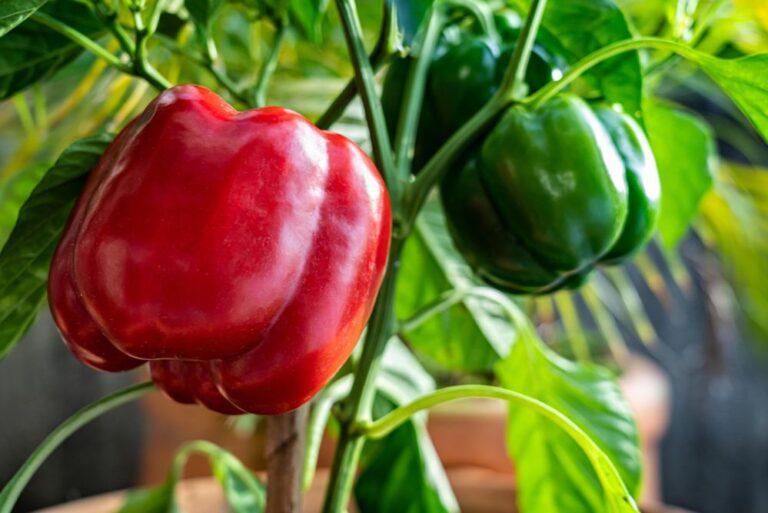Growing peppers can be a rewarding endeavor, yielding vibrant and flavorful additions to your culinary creations. To ensure a bountiful harvest, consider the following essential tips:
-
Ensure Ample Sunlight
Peppers thrive in full sun. Select a garden spot that receives six to eight hours of direct sunlight daily to promote robust growth and fruit production. -
Plant at the Appropriate Time
Timing is crucial for peppers. Wait until after the last frost when soil temperatures have warmed to at least 60°F (15°C) before transplanting seedlings outdoors to prevent cold stress. -
Provide Adequate Spacing
Proper spacing ensures good air circulation and reduces disease risk. Space pepper plants 18 to 24 inches apart, depending on the variety, to allow ample room for growth. -
Offer Structural Support
As pepper plants mature and bear fruit, they may require support to prevent branches from bending or breaking. Use stakes or cages to maintain plant integrity and facilitate healthy development. -
Prune Strategically
Early pruning can enhance plant vigor. Remove any flowers that appear before the plant reaches a robust size to encourage energy directed toward vegetative growth, leading to larger yields later. -
Nourish with Essential Nutrients
Peppers benefit from calcium and magnesium to prevent disorders like blossom end rot. Incorporate calcium sources, such as powdered milk, into the soil and consider using Epsom salts to supply magnesium, promoting healthy fruit development. -
Exercise Patience During Maturation
Peppers often take longer to mature compared to other garden vegetables. Maintain consistent care and resist the urge to harvest prematurely; patience will reward you with fully developed, flavorful peppers. -
Maintain Weed Control
Keep the area around pepper plants free from weeds to reduce competition for nutrients and minimize pest habitats. Applying mulch can suppress weed growth and help retain soil moisture. -
Manage Pests Proactively
Monitor plants regularly for signs of pests such as aphids or beetles. Implement integrated pest management strategies, including the use of insecticidal soaps or introducing beneficial insects, to keep pest populations in check. -
Fertilize Appropriately
Begin with nutrient-rich soil and apply a balanced fertilizer before planting. Continue to fertilize during the growing season to support ongoing plant health and optimize fruit production.
By following these guidelines, you can cultivate healthy pepper plants and enjoy a plentiful harvest throughout the growing season.
